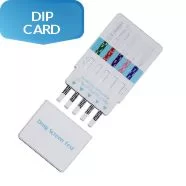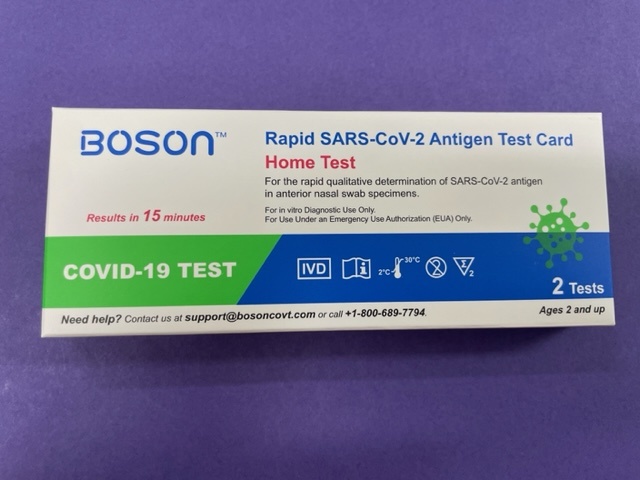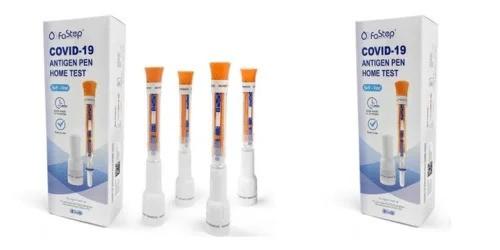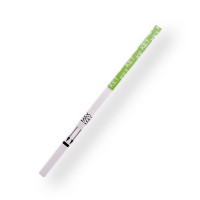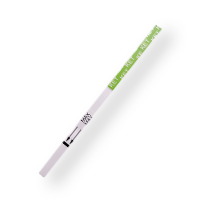Ketamine Urine Drug Test Strips
Ketamine drug test strips are an easy, quick, and accurate method for finding ketamine in urine.
detects ketamine usage in 5 minutes.
Up to 24 hours after use, this test can identify any ingestion of ketamine.
Only for forensic use
What exactly is Ketamine?
Doctors employed ketamine for its sedative and anesthetic properties in the 1960s. However, it started to gain popularity as a drug among clubgoers in the 1980s. Due to its out-of-body experience, it rose to fame.
Nowadays, doctors use ketamine to treat suicidality and Treatment Resistant Depression (TRD).
Chemically, PCP (also known as "Angel Dust") and ketamine are related. Ketamine is used in veterinary medicine even though it is typically given to humans.
Instructions for using a Ketamine Drug Test strip

Test Instructions:
Use the test kit as soon as you remove it from its sealed package. The assay should be completed within an hour for optimum results.
Hold the strip by the end, where the product name is visible. You should not touch the strip membrane to prevent infection.
-
After that, hold the test strip vertically and immerse it for at least 10 to 15 seconds in the urine sample. Avoid submerging above the MAX line on the test strip. About one-fifth of the way along the strip, to be exact.
- When the Ketamine drug test is complete, take the test strip out of the specimen and set it flat on a non-absorbent surface. Wait for the colored band(s) to appear before starting the timer. Read the outcome after five minutes. After 10 minutes, don't interpret the results.
Instructions for reading KET Drug Test Strip
If it is Positive
In the control region, there is just one colored band visible. The test region (T) shows no visible colored band

If it is Negative
On the membrane, two colored bands will appear, one band would be present in the control region (C) while the other would be present in the test region. (T)

If it is
Invalid
The control band won’t show up. any test which has not produced a control band at the specified read time must be eliminated. Please go over the steps again and do a fresh test. Stop using the kit right away and get in touch with your local distributor if the issues continue.
Side effects of Ketamine
Ketamine has side effects just like any other Schedule III substance. Among them are:
nausea and diarrhea
elevated blood pressure
hazy vision
bladder problems
Dizziness
Disassociation
Addiction
How does Ketamine Affect the Brain?
- Ketamine has advantages when it is used as directed.
- The brain's glutamate and GABA receptors are first restored to balance.
- Second, it corrects the structural modifications to the brain that stress has caused.
- Third, it stops the "disappointment center" of the brain's aberrant activity.
- Ketamine, however, is also a substance used in date rape because of its capacity to change consciousness.
Study up on ketamine.
Frequently Asked Questions
Quetiapine, an antipsychotic medication, has been discovered to produce erroneous positive findings in ketamine drug tests. However, more research is required to substantiate this.
Find out more here: A case report on quetiapine-induced false positive results for ketamine urine immunoassay screening.
The body can retain ketamine for up to three months. Ketamine drug test detection times are listed below.
Saliva: one day
Blood: 24 hours
Urine: 3 days
Hair: 90 days
Read More: How Long Does Ketamine Stay in Your System?
No. In most cases, a typical 12-panel urine drug test misses ketamine. A ketamine drug test strip can, though.
A ketamine strip is available from any retailer that offers materials for drug testing. Make sure they're accurate and secure, though. Additionally, they must to be FDA-approved and CLIA-waived.
The cheapest ketamine drug test strips are available from 12 Panel Now. Just $0.79 for each strip.
Ketamine: Is it an Opiate?
Not at all, no. Ketamine is not an opioid either. However, it addresses depression in a special way. The opioid receptors in the brain are where opioids bind. Ketamine, on the other hand, binds to NMDA receptors, which are important for memory and learning.
Find out more here: Ketamine isn’t an opioid and treats depression in a unique way
Ketamine can indeed be addictive. It is less addictive than opioids, though.
Specifications
| single dip test | single dip test |








